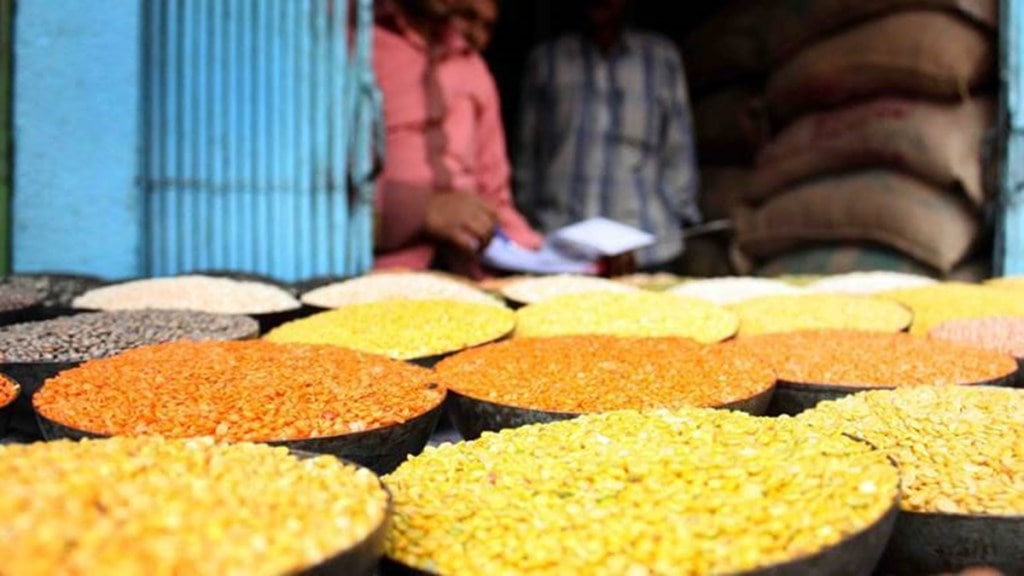Mandi prices of kharif crops such as oilseeds and pulses, for which the government had announced a substantial hike in the minimum support price (MSP), are currently ruling substantially above the benchmark price because of robust demand and inadequate domestic output.
Traders say that the hike in MSP is likely to encourage farmers to take up more area under pulses and oilseeds in the coming kharif season.
The government on Wednesday announced a 10.4% increase in the MSP for moong for the 2023-23 season to Rs 8,558/quintal, while tur MSP was hiked upward by 6% on year at Rs 7,000/quintal.
The support price for groundnut and soyabean, key oilseeds grown in the kharif season, have been increased by 9% and 7% on year to Rs 6,377/quintal and Rs 4,600/quintal, respectively.
Also read: Cut grain procurement from states with high mandi taxes: CACP
“Hike in MSP is a boost to farmers’ income and definitely provides remunerative prices to the growers, which will result in higher seeding for pulses like tur, urad and green mung beans this year,” Harsha Rai, head, Mayur Global Corporation, a leading firm in pulses trade, told FE.
Currently, mandi prices of kharif pulses like tur and moong, and oilseeds such as groundnut and soyabean are ruling above MSP because of decline in production last year and robust domestic demand.
“Hike in MSP comes at a time when farmers across the country have been battered by unseasonal rains and changing weather patterns. This would also encourage farmers to grow certain crops,” said Aneesh Jain, founder, Gram Unnati.
India imports about 56% of its total domestic requirement of edible oil, while 15% of pulses consumption is met through imports.
Also read: Ajai Chowdhry’s 5-point strategy to make India a semiconductor manufacturing hub
However, actual procurement of pulses tur, urad and moong and oilseeds by Nafed, the official procurement agency, has been minimal in the last couple of years as mandi prices ruling far above MSP.
Stating that not all crops benefit from MSP, leave alone equally, Pushan Sharma, director – research, Crisil Market Intelligence and Analytics. said “while around 45% of the paddy produced is procured at MSP, it is 25% in case of cotton and only 1-3% in case of pulses.”
Earlier in the week, the government removed the procurement ceiling of 40% of total marketable surplus for tur, urad and masoor under the price support scheme. Curiously, the move comes when elevated prices of three varieties forced the government to impose stock limits for urad and tur last week.
Sources said that because of robust demand and domestic shortfall, Nafed has unable to procure substantial quantities of these pulses varieties from the farmers under PSS. The government has been importing these varieties of pulses to meet domestic demand.
To curb hoarding and speculation amid rising prices, the government last week had imposed limits on the stocks of tur and urad dal. The stock limit is applicable to a range of entities such as wholesalers to retailers, millers and importers.
The order will be effective till October 31.


